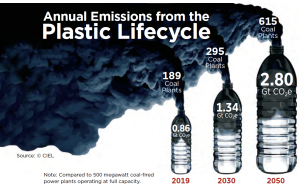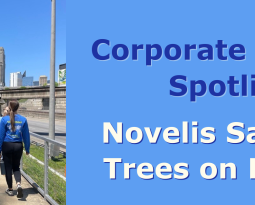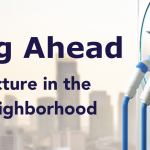Plastic Planet: Unraveling the Global Crisis
With a plethora of global events held on Earth Day 2024, the hope was to bring awareness to the growing impact of plastic waste and equip individuals with the tools to make a positive environmental change. During this time, The United Nations Intergovernmental Negotiating Committee on Plastic Pollution fourth session (INC-4) convened and ended with no further progress towards an agreement ending plastic pollutants. The committee labored to agree on the treaty’s scope or provisions. Initially conceptualized, the treaty was to reduce the mismanaged wastes from newly produced plastics to zero by 2040.
 Plastic is invading every aspect of life on our planet. The U.S. uses more than 29 billion single-use water bottles annually, more than any nation. The manufacturing of these bottles requires 17 million barrels of crude oil. Distributed per bottle would be 25% crude oil. Imagine your water bottle being 25% oil. Humans generate over 380 million tonnes of plastic waste each year. Image two million elephants combined on a scale equaling 8 million tonnes, they are the equivalency of the annual amount of plastic waste making its way into our oceans.
Plastic is invading every aspect of life on our planet. The U.S. uses more than 29 billion single-use water bottles annually, more than any nation. The manufacturing of these bottles requires 17 million barrels of crude oil. Distributed per bottle would be 25% crude oil. Imagine your water bottle being 25% oil. Humans generate over 380 million tonnes of plastic waste each year. Image two million elephants combined on a scale equaling 8 million tonnes, they are the equivalency of the annual amount of plastic waste making its way into our oceans.
Since plastic is not biodegradable, plastic waste eventually reduces to microplastics unseen by the human eye. New technology discovered microplastics break down into smaller particles called nanoplastics. Nanoplastics can invade individual cells in the human body straight into the bloodstream and are to the brain and heart. Confronting the overwhelming scale of plastic pollution will entail cuts to production and addressing the full life cycle of plastic. Scientists and experts are researching alternatives to plastics and ways to make plastic biodegradable. Recently, scientists have developed a plastic that self-digests by adding bacteria spores.
With the treaty in negotiations at the global level, Georgia is concentrating on recycling and repurposing plastics. Immediately following Earth Day, Brightmark, announced they will be investing $1 billion to build a factory in Thomaston, Georgia. The company is known for its circular innovations and strives to create a world without waste. Bob Powell, CEO, and founder, says $1 million of the investment will be towards a Zero Liquid Discharge system that treats and recirculates water ensuring local waterways will not be affected. Atlanta’s Nexus Circular facility is being spotlighted in a video for the Recycling is Real advocacy campaign.
Each year, Georgians dispose of an estimated 1 million tons of plastics. One person can help make a difference. Recycling one plastic water bottle saves enough energy to power a 60-watt light bulb for six hours. Imagine if everyone were to recycle a bottle a day. While it may seem one person cannot make a difference in the overwhelming epidemic, one person is helping to champion action to protect our planet and its inhabitants from plastic harm.
For more information on recycling check out our series ‘Let’s Talk Recycling’.








